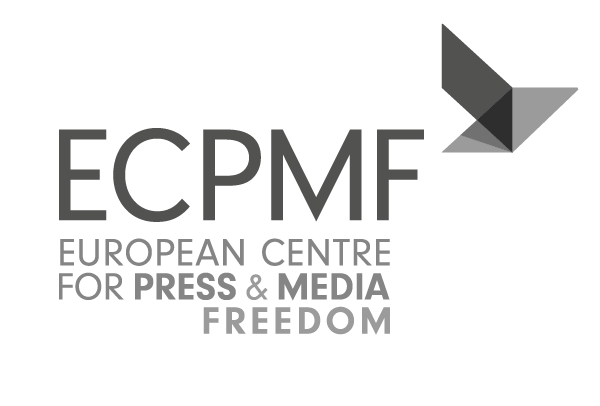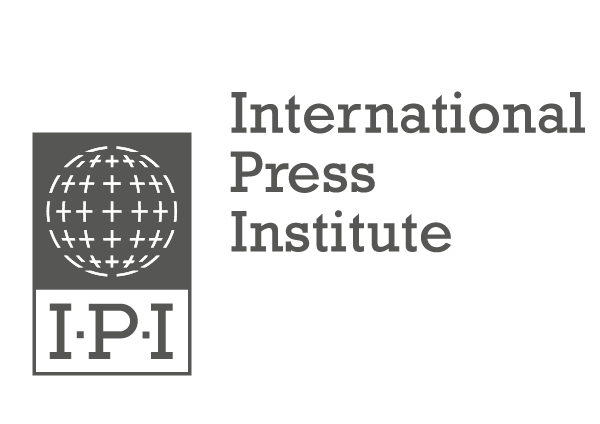For World Mental Health Day (10th October 2020) ECPMF Helpdesk Manager, Katrin Schatz outlines the steps needed to protect the mental health and emotional wellbeing of journalists and media workers across Europe and what the Media Freedom Rapid Response can do to support
In this piece, ‘women’ refers to all people who identify as women.
Given the nature of their work, according to research cited by the DART Center for Journalism and Trauma, between 80 and 100% of journalists and media workers have been exposed to traumatic events as part of their work from a range of different sources. They are often witnesses to traumatic events, ranging from armed conflicts, natural disasters and homicides to everyday tragedies like crime scenes, traffic accidents and domestic violence. As witnesses, while the trauma might not be experienced first-hand, it can still be felt vicariously and affect the journalists’ mental, physical, and emotional well-being.
As the situation of press and media freedom worldwide is deteriorating, this puts journalists and media workers further at risk from a wide range of direct and indirect physical, legal, psychological and digital safety threats. For instance, the majority of journalists have been exposed to intimidation and online harassment, solely for carrying out their work. For women, non-binary and LGBTI journalists as well as journalists of colour these attacks can be especially consistent and vicious.
The majority of journalists have been exposed to intimidation and online harassment, solely for carrying out their work.
Since the beginning of 2020, the Mapping Media Freedom platform has recorded 227 threats against press and media freedom in EU Member States and Candidate Countries. 122 (54%) relate to harassment and/or psychological abuse, such as intimidation, threats, sexual harassments and smear campaigns, as seen in the abuse directed at Florence Hainaut in Belgium and Miroslava Byrns in North Macedonia. Further to this, having to source and fund legal representation and participate in court cases related to legal threats, such as SLAPPs and defamation can affect a media professionals’ mental health.
The mental health of journalists is too often overlooked
Being constantly exposed to trauma, either first or second-hand, in-person or online, takes a toll and can have a significant impact on a person’s emotional health and willingness to continue their work safely. The psychological impact of this work can take various forms and is experienced differently by each individual due to the context, severity and frequency of exposure. Anxiety, depression, post-traumatic stress, and insomnia are common diagnoses, with further symptoms such as increased alertness, numbing and disassociation, intrusive memories, concentration problems, and overreaction to everyday events being associated with post-traumatic stress disorder.
This is a cultural issue as well. Stress is very much considered as part of the profession; the default state of contemporary newsroom culture. Irregular schedules, tight deadlines and potentially dangerous reporting environments are typical aspects of a career in journalism across Europe. This is further entrenched by diminishing resources for in-work support, fewer staff to alleviate pressures on individuals and insecure working contracts. The normalization of such working conditions, when twinned with stereotypes concerning bravery and grit can undermine the process of journalists and media workers acknowledging underlying mental health issues and seeking necessary support.
COVID-19 is affecting journalists’ mental health
In June 2020, the Reuters Institute for the Study of Journalism and the University of Toronto interviewed 73 journalists from international news organizations covering the pandemic. Early results state that around 70% of the respondents suffer from some levels of psychological distress, with further responses suggesting that 26% have clinically significant anxiety compatible with the diagnosis of Generalized Anxiety Disorder, symptoms of which include feelings of worry, feeling on edge, insomnia, poor concentration and fatigue. Around 11% of respondents report prominent symptoms of post-traumatic stress disorder, which include recurrent intrusive thoughts and memories of a traumatic COVID-19-related event, a desire to avoid recollections of the event, and feelings of guilt, fear, anger, horror and shame.
While these symptoms warrant immediate attention to support the journalists and media workers themselves, this is also a severe threat to the information society needs to understand and cope with the current public health crisis across the globe. By protecting the health of journalists and media workers we are protecting the health of our democracies and societies.
Media professionals need more support than ever coping with work related trauma
Journalists are as vulnerable to psychological trauma as they are to physical, digital and legal threats. Thus, psychosocial safety is of crucial importance and should not be seen as separate to other dimensions of safety. Approaching these threats holistically and preparing accordingly enhances the overall safety of journalists.
Psychosocial safety is of crucial importance and should not be seen as separate to other dimensions of safety.
Resources exist to ensure journalists can access the support they need. For instance, the Dart Center at Columbia University in New York is a resource hub on the topic of journalism and trauma. It provides guidance on how to report ethically on tragic and/or traumatic incidents as well as to protect oneself from their harmful effects. Further to that, many organisations publish guides and provide trainings related to mental health issues for journalists.
Where self-care is not sufficient and local support mechanisms are lacking, journalists can access psychological support through international organisations. Journalists based in EU Member State and Candidate Countries can receive financial assistance through the practical support fund of the Media Freedom Rapid Response: https://www.mfrr.eu/support/practical-support/






